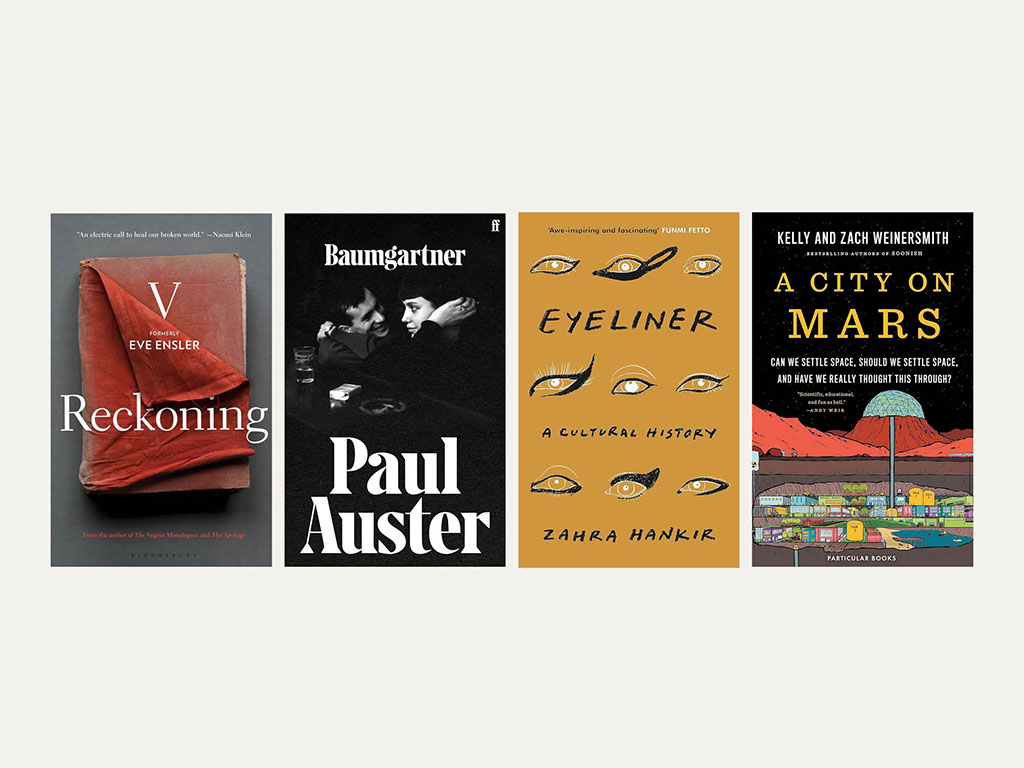
A City on Mars: Can We Settle Space, Should We Settle Space, and Have We Really Thought This Through? by Kelly and Zach Weinersmith
Particular Books, 448pp, £25
When I interviewed Elon Musk in 2014 he told me that his company, SpaceX, would put a person on Mars in “ten, 11 years”, and that his ambition was to build a city, home to millions of people, on the red planet. At the time I assumed he was just making another outlandish statement to sell cars (he was). What I hadn’t appreciated, until I read Kelly and Zach Weinersmith’s lighthearted primer on the realities of space exploration, is just how laughable a claim that was.
That city would need good hospitals because the nine-month journey to Mars, using anything like current technology, would leave adventurers with osteoporosis, kidney stones and possibly brain damage. Microgravity can permanently damage astronauts’ eyes, while the intense radiation beyond the Earth’s magnetic field would create a high risk of cancer. And that’s just the trip over: no one in the city would ever be able to leave its sealed habitats without a space suit, because there is almost no atmosphere and the soil itself is toxic. You first, Elon.
By Will Dunn
Eyeliner: A Cultural History by Zahra Hankir
Harvill Secker, 368pp, £18.99
What unites the men of the Wodaabe in Chad, the geishas of Kyoto and the drag queens of Fire Island? Eyeliner – or, rather, kohl, kajal, ithmid, sormeh, tiro, etc, depending on which part of the world you’re in. The Lebanese-British journalist Zahra Hankir makes a compelling case that, far from an inconsequential vanity, eyeliner is not just about beautification but protection, and even politics, for men and women across the world and through the ages.
Beginning with Queen Nefertiti and the ancient Egyptians’ use of kohl, Eyeliner documents the practices and stories of protesters in Iran and Bedouin men in Jordan, kathakali dancers in Kerala and Latin women embracing the chola aesthetic – all of whom find some part of their identity in the cosmetic. For many of Hankir’s interviewees, applying eyeliner is not only intensely personal but a means of connection with their wider heritage and culture. For others, it’s medicinal: antibacterial properties of certain formulas can protect from infection, or shield delicate eyelids from the sun. For all, it “speaks a universal language of lineage and transformation, or beauty and power”.
By Pippa Bailey
[See also: Why we chose Benjamin Myers’s Cuddy as the 2023 Goldsmiths Prize winner]
Baumgartner by Paul Auster
Faber & Faber, 202pp, £18.99
Sy Baumgartner, 20 years old, first catches sight of Anna, 18, in a Manhattan hardware store. Over the pots and pans they size one another up, “testing out the potential pros and cons of what might or might not begin to happen if something began to happen”. Something does happen, and continues to happen, until her death in a freak accident decades later. Now Baumgartner, a philosophy professor, has to face the prospect of both retirement and the hole left by the woman who was the true focus of his life.
The American novelist Paul Auster has some 30 books to his name, so there is a practised certainty to the way he rolls out the life of an ageing man with a flatlining future. This short novel is composed of small-scale incidents – a love affair with a widow that doesn’t quite coalesce, a basement fall – but mostly it is about memory as a mosaic. Baumgartner’s stray recollections of his mother’s laugh or a picnic with Anna never amount to a narrative but build instead into a poignant portrait of a life that is done even if it is not yet over.
By Michael Prodger
Reckoning by V
Bloomsbury, 272pp, £16.99
Now known as V, Eve Ensler, the writer, activist and author of The Vagina Monologues, has published a collection of her writing, spanning poetry, memoir, reportage and creative non-fiction. The writing is associative, fragmented, angry and hypnotic. It collapses the distinction between the personal and the political, and coalesces only loosely around themes: Aids, femicide, walls, grief, falling, hunger and, of course, “reckoning”: the act of “slowing down and assessing and looking, really looking”, of “determining personal and collective responsibility”. She writes about being abused by her father and of being failed by her mother (“I needed her milky breasts. I got cigarette smoke instead”), and of how, now 70, she has spent her life trying to overcome this original trauma.
To read this collection cover to cover is to risk feeling bludgeoned by its reports of mass rapes in the Congo and Isis sex slaves. This is a book to read slowly, one passage at a time, when it becomes possible to appreciate the exquisite poignancy of some of V’s prose. “One is always failing at writing. One is always one step, one word, away from writing what one actually meant to say,” she writes. But at times she just nails it.
By Sophie McBain
[See also: David Hockney’s clumsy late style]
This article appears in the 08 Nov 2023 issue of the New Statesman, The Age of Fury






